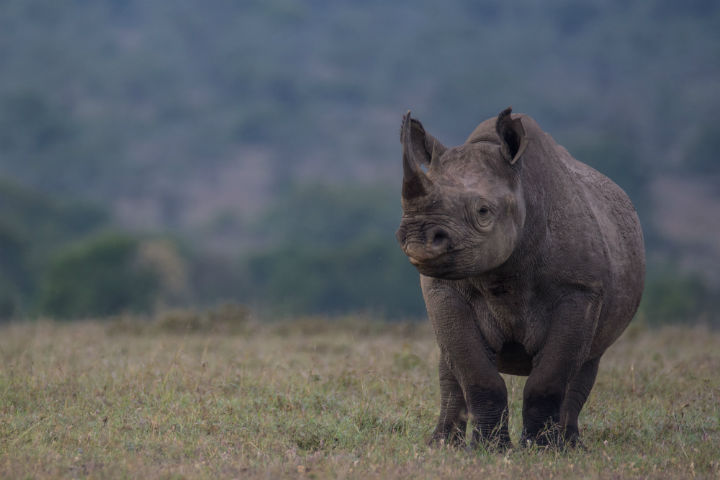A Canadian citizen is going to spend two years in a U.S. prison after pleading guilty earlier this year to smuggling objects made from rhinoceros horn.

Thirty-five-year-old Linxun Liao was arrested in February as a part of “Operation Crash,” a U.S. crackdown on rhino horn trafficking.
The U.S. Dept. of Justice (DOJ) said Friday he had purchased and smuggled 16 “libation cups” that had been carved from rhinoceros horns and that had a combined market value of more than $1 million. He pleaded guilty on June 30.
“Each of the ceremonial cups that Liao trafficked represents one step closer to extinction for the rhinoceros, which are steadily being wiped out by poachers for the illegal rhino horn market,” said U.S. Fish and Wildlife Service Director Dan Ashe, in a statement after Liao was sentenced in a Manhattan federal court on Thursday.
READ MORE: South African park rangers confront rhino poachers at gunpoint
“This sentence will serve as a strong warning that we are going to find, arrest and prosecute anyone engaged in this sort of activity and make sure they are no longer able to deprive our children and grandchildren of their wildlife inheritance,” Ashe said.
According to the DOJ, Liao bought the 16 cups online from auction houses in the U.S., using the address of family members who lived in New Jersey, between March 2012 and May 2013. He then smuggled the items to China without the proper documentation or permits, using a Manhattan-based courier service.
“Liao closely coordinated his efforts with co-conspirators who sold the items for a profit at their antique business in China,” the DOJ said in its statement.
Liao is the second Canadian this year to be sentenced to prison in the U.S. for the illegal trafficking of rhinoceros horn. In March, 39-year-old Xiao Ju Guan (also known as Tony Guan) was sentenced to two and a half years in prison after he was caught trying to smuggle two black rhinoceros horns from New York to British Columbia. According to the Canadian Press, Guan owns an antiques business in Richmond, B.C.
READ MORE: Conservation group aims to reintroduce ‘critically endangered’ black rhino to Chad
The rhinoceros is a protected species under the Convention on International Trade in Endangered Species of Wildlife and Fauna (CITES), as well as the U.S. Endangered Species Act, and any trade or transportation of rhinoceros horn products is regulated.
“Willfully failing to declare the nature of the shipments or obtain required permits, Liao broke laws that protect rhinoceros and other magnificent species threatened with extinction,” said U.S. Attorney Peet Bharara of the Southern District of New York. “He has learned the cost of his illegal conduct.”
Through their investigation, authorities also uncovered 304 pieces of ivory carvings which he will have to forfeit. He will also have to hand over $1 million and will be banned from having any involvement in wildlife trade.
“We must ensure that the market for antiques and alleged antiques does not also contribute to the extinction of these iconic animals, which could disappear in our lifetimes if we do not act now to stop this illegal trade,” Assistant Attorney General John C. Cruden said in the DOJ statement.
READ MORE: Conservation hunt? Corey Knowlton paid $350K to kill endangered black rhino
Despite its endangered status and strict regulations on the trade of rhinoceros horn, poaching continues to decimate the rhino population.
According to the conservation group Save The Rhino, there are just 29,000 rhinoceroses left in the world, compared to approximately 500,000 at the beginning of the 20th century.
In South Africa, poaching reached a record level in 2014, with 1,215 animals poached. As of the end of August, there had been 749 rhinos killed, putting poaching on track to beat the previous year’s record.
“Rhino poaching has reached a crisis point, and if the killing continues at this rate, we could see rhino deaths overtaking births in 2016-2018, meaning rhinos could go extinct in the very near future,” Save the Rhino says on its website.




Comments